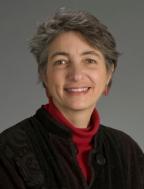Prior to the recent APHA Annual Meeting, the CBPHC-WG held a day long workshop focusing on Community Health Workers. There were over 110 attendees including presenters and organizers. This was the largest workshop our group has held in the 13 years we have been conducting these workshops. It was a great feeling to see APHA functioning at its best in providing a venue where those from MCHIP, CORE group, academics, members of other NGOs, not-for-profit and for-profit organizations and consultants could share their views in an open, mutually respectful environment and learn from each other. This year JSI personnel, under the leadership of Mary Carnell, worked in partnership with Working Group members in all stages of workshop planning and implementation. The work of Agnes Guyon (who lead the workshop), Sandee Minovi and Kimberley Farnham, all from JSI, and our own Sandy Hoar, Vina Hulamm, Melissa Freeman, Laura and David Paragon, Tonio Martinez and Larry Casazza were outstanding.

Our norms were: use of an evidence-based approach, the right for all participants to be heard and for their viewpoints to be respected. At this time, renewed attention is being given to the role of CHWs with recognition becoming more widespread now that the Millennium Development Goals, especially those for women and children, cannot be met without community involvement. The 8 large group presentations and 16 small group discussion sessions covered well a wide range of perspectives on CHW motivation, retention and performance. I am sure some participants were being exposed to different points of view from their own for the first time.

I would especially like to highlight the area of internal motivation of CHWs. Through Pink’s book “Drive” many of us are becoming acquainted with the “modern” approach to the importance of autonomy, mastery and purpose in motivation. Yet several NGO presentations, such as those by Tom Davis of Care Groups and Connie Gates of Jamkhed, demonstrated that these elements have already been addressed by NGOs for decades as appropriate to local circumstances.

Melissa and I will prepare a report of the workshop to be disseminated early next year. There were many lessons to learn from conducting this workshop that should remain with the International Health Section for years to come. One of the key lessons was that with enough goodwill and cooperation from individual members – things work best with at least 8 volunteers for such an event – memorable events can be implemented by the Section. With enough “hands” each contributing a relatively small amount, things go much more smoothly than if all sit back waiting for a few to do all the work.
Paul Freeman is a physician with advanced training in tropical disease control and general public health, health personnel education, and health program management and evaluation. He has over two and a half decades of experience in capacity building and the design, planning, implementation, monitoring and evaluation of primary health care, child survival and malaria control programs in developing countries and for deprived rural indigenous populations in developed countries. He is a Clinical Assistant Professor at the University of Washington School of Global Health and the Chair-Elect of the International Health Section.




